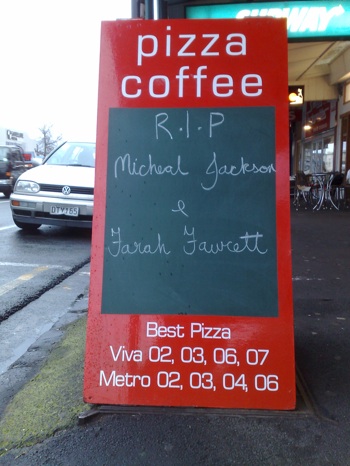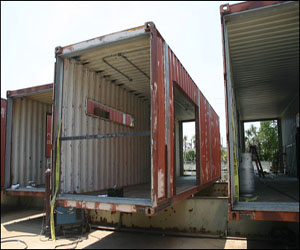It is common for your current affairs presenter to strap on the bow and arrow and style himself - it's invariably a him - as a latter-day Robin Hood. Righter of wrongs, exacter of justice, champion of the meek.
Paul Henry is no exception, although his particular schtick seems to be to pose the question: "Honestly, aren't we a being a bit hard on the Sheriff of Nottingham?"
So on Friday night we saw the Close-Up team fan out across the country to fly JetStar for themselves and report the results, without fear or favour. In two out of the three cases, the intrepid reporters found that they had been allocated a seat at the front. And so on. The planes ran on time, more or less. More or less, everything was all good.
It's almost as if they knew I was coming, declared Donna-Maree Lever standing to the side of the checkin counter, speaking to the camera.
It was as if no-one had been shut out from flights after arriving on time, and no police had been called to any airport to sort out stroppy passengers.
It was also as if Jet Star had latterly been on a charm offensive, desperately trying to clean up the PR mess and, for reasons best known to themselves, the country's pre-eminent truth-finding current affairs team had decided that travelling genuinely incognito would be, oh, what's the expression? A hassle?
After a few weeks of chaos, a few things seem clear: JetStar needs more practice. It looks as though they deliberately overbooked their flights - business as usual in the airline game, because it mostly works - but got their ratio wrong and ended up having to bump a lot of passengers. So far, so normal. The point at which it comes unstuck is the part where they fail to fess up. Instead they declare that passengers who had turned up in time were, by some other rules of time travel known only to them, too late.
This is not to say that the fault is all with the airline. Some travellers seem to be failing to acquaint themselves with the rules of engagement of a budget carrier: come prepared, and don't expect to get any frill of any character without paying for it, up to and including eighty bucks for an extra toilet bag. If you didn't understand that to be the meaning of millions of marketing dollars Air New Zealand has been spending, then clearly there is no margin left for for subtlety in advertising. It might also explain why this Good old sheriff thing is working out so well for Paul Henry.


